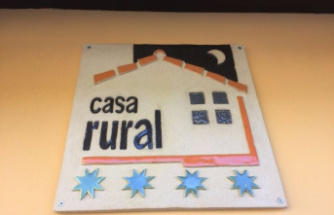It hasn't been easy for House Speaker Tina Kotek to carry the torch on boosting renter protections. The Portland Democrat has successfully pushed tenant-friendly legislation, much to the chagrin of some area landlords. Last week, when she spoke at a real estate conference, a landlord threatened to finance a candidate to run against her -- to which the crowd of property owners and developers cheered, according to The Daily Journal of Commerce.
Though landlords and politicians including Kotek agree that Oregon is in the throes of an affordable housing crisis, they diverge on how to solve it. And Kotek's big idea -- rent control -- is particularly taboo for landlords.
She declared her support for rent control last September, saying it's one way to stabilize Portland's rapidly-increasing rents. Kotek codified her plans in legislation, which would repeal a longstanding statewide ban on rent caps -- allowing cities and counties to pass their own rent control policies -- and, for one year, bar rent increases above 5 percent.
The bill grants landlords exceptions to the rent cap, including an appeals process and guarantees of "fair" investment returns.
The following conversation between Kotek and The Oregonian/OregonLive about her bill has been edited for length and clarity.
Q: Can you tell us how your bill came together?
A: My bill focuses on tenant protections that are needed in Oregon's unpredictable rental market. We're going to continue building more housing that's affordable and preserving the housing we have. But we also need some short-term fixes because the rental market is unpredictable.
Q: How would this solve some of the problems we're seeing?
A: I think a good example is what's happened with two of the complexes in my own district. One is the Normandy Apartments. The new owner bought it and jacked up the rent by 100 percent. That's just impossible to deal with. People are being economically evicted. It's unfair. The moratorium on rent increases would prevent that for a year.
Secondly, if Portland had a rent stabilization policy, they could say to the owner, 'If you need a rent increase, come make that case. But in the meantime, you can't just price gouge people in these apartments.'
Q: There's a line in your bill that contains arguably vague language, saying municipalities adopting rent control must provide landlords a "fair rate of return" on investments. What does that mean to you?
A: What you're hearing from landlords about rent control is they have an idea of it that's very much the model that began right after World War II where properties had hard, fast caps on rents. That's not the kind of rent control we're talking about. We're talking about second-generation rent stabilization where there's a process for managing rent increases that protects investors and tenants.
My bill says if you have a local policy, it has to take into account a fair rate of return for the property owners. That would be determined locally. Sometimes that's a combination of cost of living and property taxes and other factors. I don't think it's up to the state to say what that means.
Q: Do you see how some might say your bill allows cities and counties to decide how much profit landlords can make?
A: For a local program to be established it would have to go through a process of having open, transparent public hearings on how best to set the policy in place. In terms of profit, if you own a property, you're going to have to be able to raise the rent to maintain it and have a reasonable rate of return. I suppose some would say you're trying to define profit. We're trying to define predictability in the market.
Q: How did you decide on 5 percent as the rent increase cap?
A: We talked to housing experts and looked at increased costs of inflation and property taxes. That 5 percent is up for debate, but we thought it was a reasonable place to start.
Q: Economists generally agree that rent control is a bad idea. They say it doesn't increase the amount or quality of affordable housing units, that the incumbent tenants, who are often higher-income, get the rent-controlled units. Your response?
A: I wouldn't go as far as saying those arguments are myths but I would say they're based on misinformation. I feel the argument that economists don't like rent control are comments about rent control when you had properties with fixed rents. That's not what we're talking about. Jurisdictions using rent stabilizations today talk about rate of return, exemptions under certain circumstances. They're much more nuanced and sophisticated to make sure there's not an adverse economic impact.
In terms of the argument that rent stabilization doesn't do anything for providing more affordable housing -- rent stabilization is not about supply. It's about making the market more predictable and reducing displacement. I have not seen one report that specifically says rent stabilization reduces housing supply.
Q: Has your bill been met with resistance from lobbying groups?
A: Of course. I've been speaking with landlords and developers. Certainly they have a different perspective on what rent stabilization would do. But the depth of this crisis requires us to take up the conversation.
I have not heard anything from the landlord community other than, 'We need more supply.' I don't disagree. But we would have to build 110,000 units in-state this year to make up for the supply gap.
In the meantime, it's a little bit of the Wild West out there if you're a renter. Rent stabilization is a thoughtful, reasonable approach to putting some constraint on how rent increases happen.
I'm not blaming landlords. This is no one's fault. But I think to not engage in the conversation is not helpful. And they're not providing additional solutions at all.
Q: Any parting thoughts?
A: I will say I'm disappointed by some folks in the landlord community who have been resistant to having a rational conversation. In fact, I would go as far as saying disrespectful and incredibly unhelpful.
We have a crisis in this state and if someone just says 'Here's the one way to solve it,' they're not being honest. We have to build, we have to preserve units and we have to protect tenants. We need all three. The landlord community is being unfair and not stepping up to actually talk about this in a realistic way.
I think people aren't looking at the facts. I told landlords we need 110,000 units built this year to meet demand, and they all said they can build them. That's not true.
Just dealing with housing supply isn't going to solve the problem. We have people being evicted through price gouging in my district. Building units will not solve that tomorrow. People should be honest about what the facts are telling us.
-- Gordon R. Friedman
gfriedman@oregonian.com; 503-221-8209
@gordonrfriedman
Our editors found this article on this site using Google and regenerated it for our readers.













